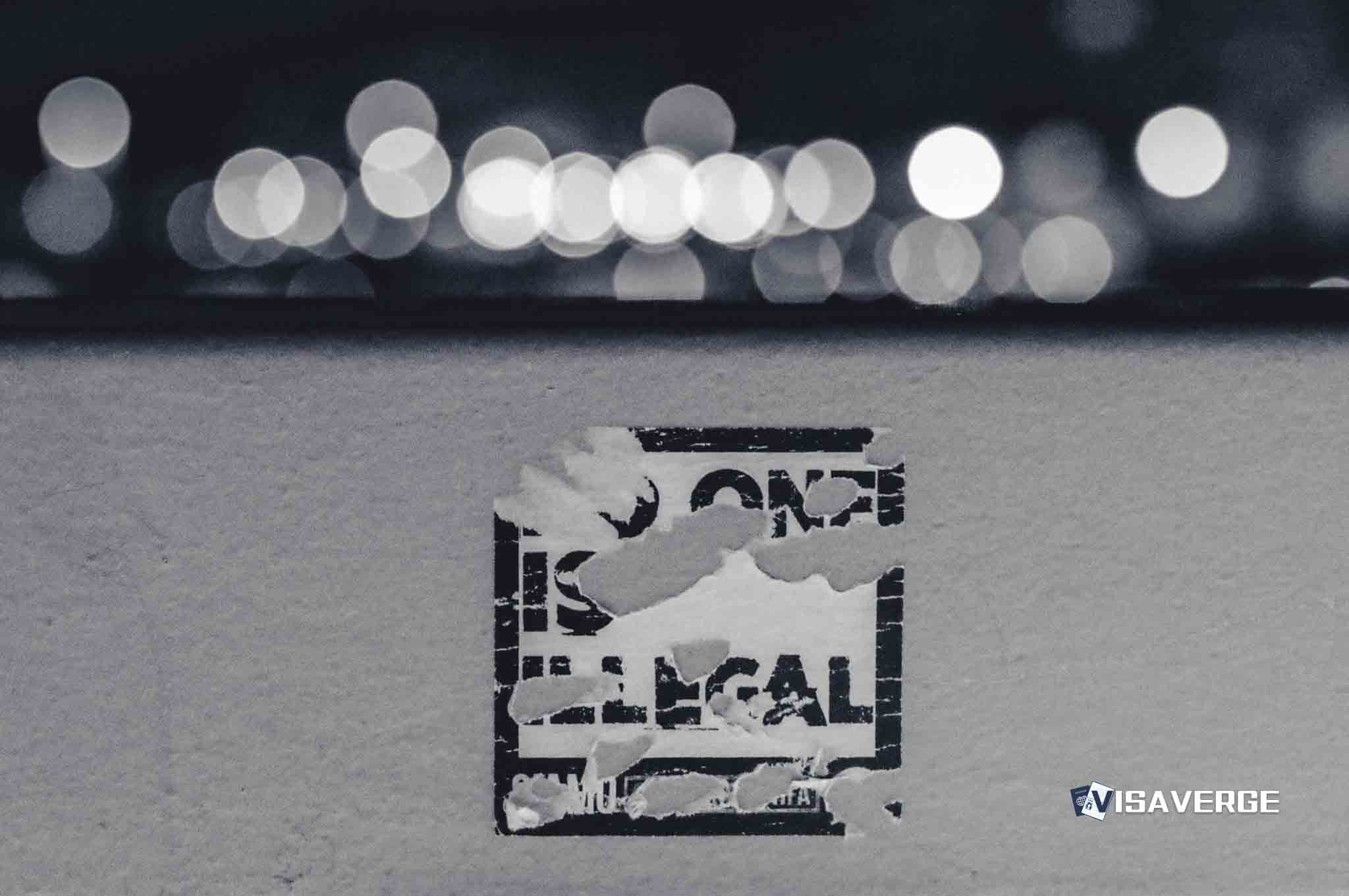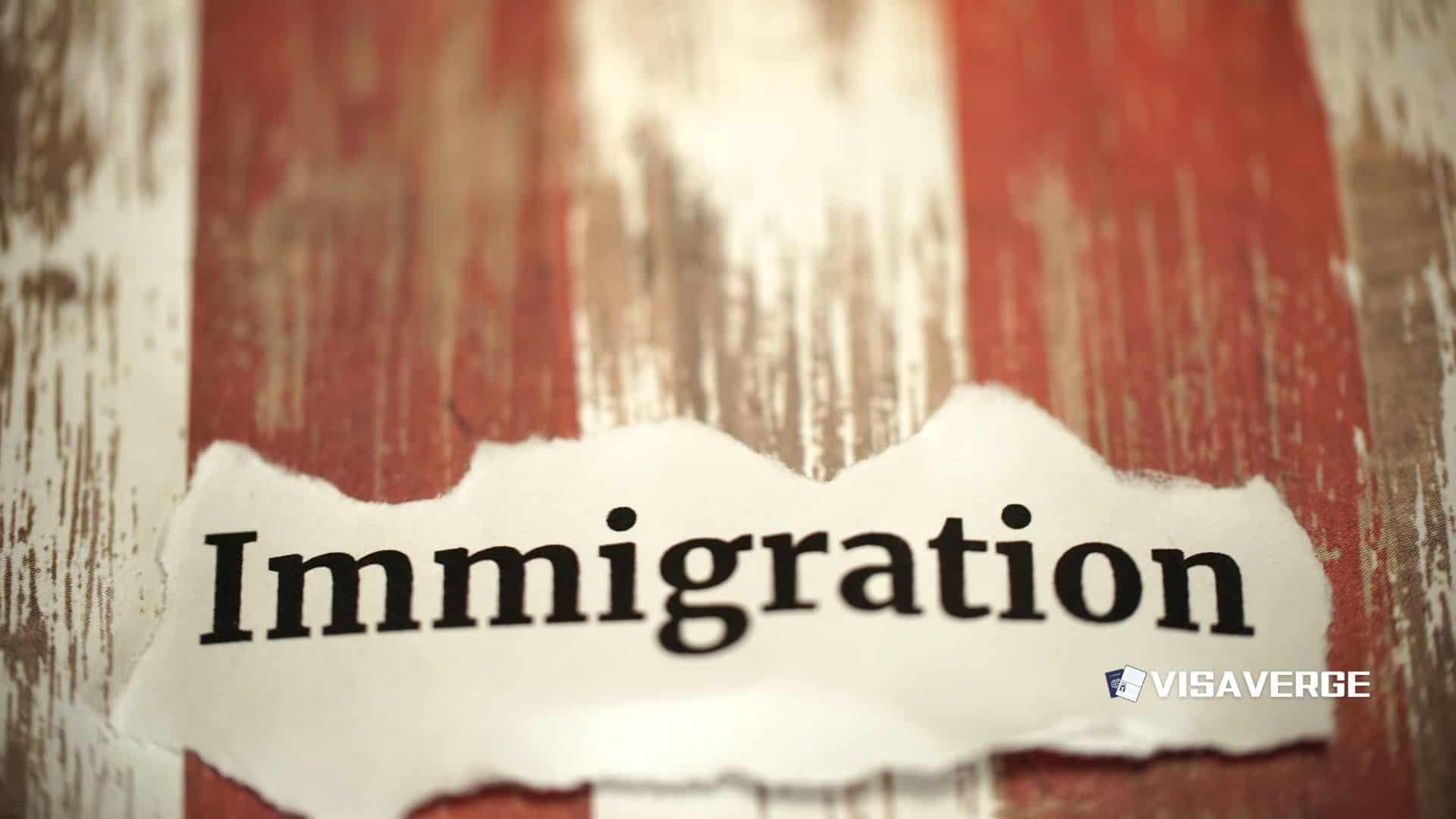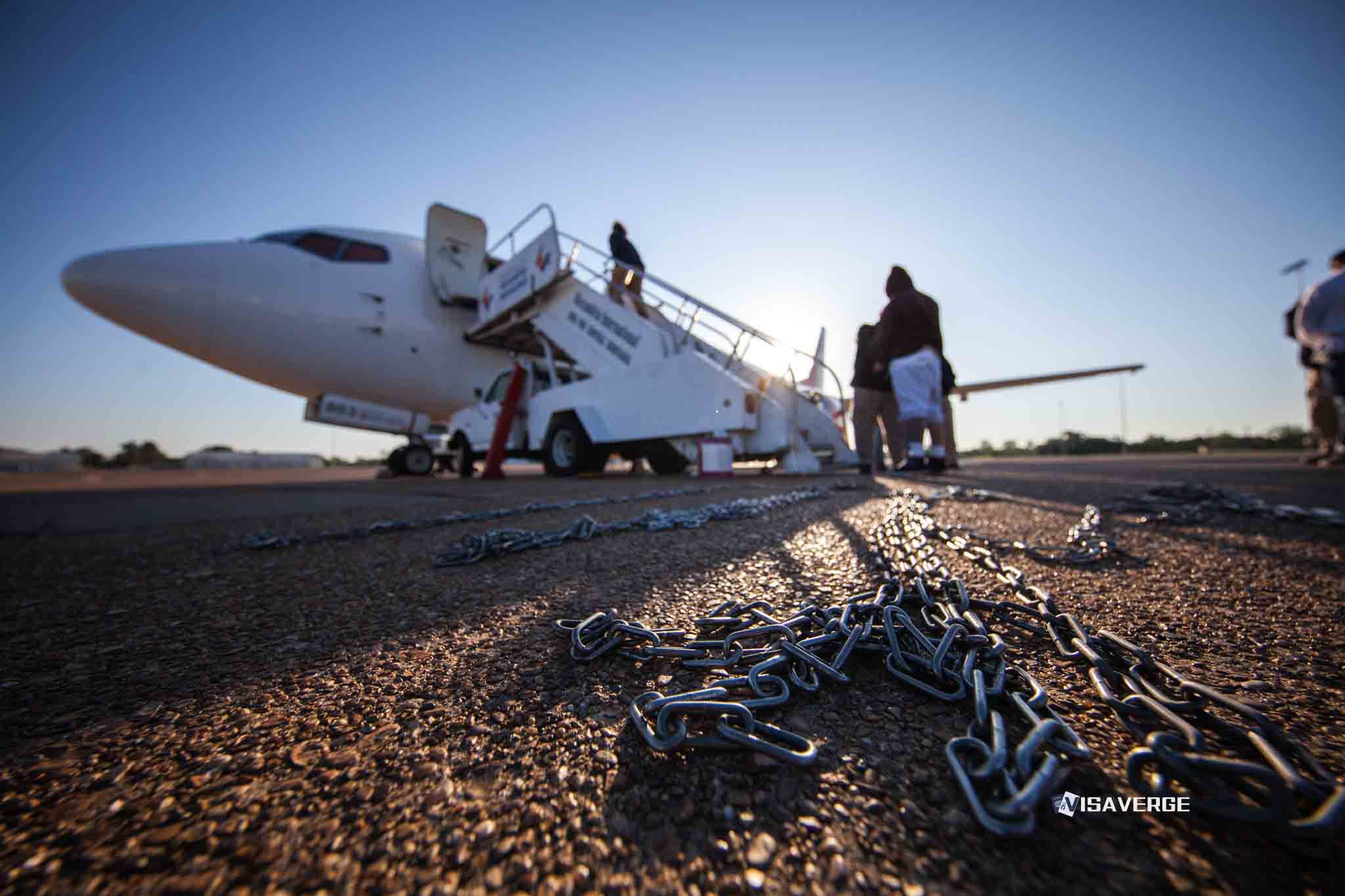Key Takeaways
• President Trump’s expanded travel bans affect fans and workers from 19 countries attending 2026 FIFA World Cup in the US.
• Visible ICE and 287(g) local law enforcement create fear, lowering stadium attendance and fan participation nationally.
• FIFA offers no visa waivers or enforcement guarantees, facing growing pressure from advocates and communities worldwide.
The intersection of global sporting events and national immigration policy has become a focal point of international debate as the United States 🇺🇸 prepares to host the 2026 FIFA World Cup. Recent changes under President Trump’s administration have sparked urgent calls from civil rights groups, immigrant advocates, and segments of the global community for FIFA to use its influence to protect the event’s inclusivity and safety. This analysis examines the scope of these concerns, the methodology behind stakeholder responses, key findings, data trends, and the broader implications for fans, athletes, and immigrant communities.
Purpose and Scope

This analysis aims to provide a comprehensive, evidence-based overview of how President Trump’s current immigration policy is affecting preparations for the 2026 FIFA World Cup in the United States 🇺🇸. It explores the concerns raised by advocacy groups, the official responses from FIFA and U.S. authorities, and the practical impacts on fans, workers, and immigrant communities. The goal is to inform readers about the real-world effects of these policies and the ongoing debate over FIFA’s role in ensuring a safe and welcoming tournament.
Methodology
This report draws on:
– Public statements and press conferences from advocacy groups and FIFA officials
– Recent executive orders and policy documents from the Trump administration
– Reports of enforcement actions at FIFA events, including the ongoing Club World Cup
– Media coverage and direct accounts from fans, legal experts, and local officials
– Data on visa denials, stadium attendance, and ticket sales
– Official resources from FIFA, U.S. Department of State, and U.S. Immigration and Customs Enforcement (ICE)
Information has been organized to highlight key developments, compare stakeholder perspectives, and identify patterns and trends relevant to the 2026 World Cup.
Key Findings
- President Trump’s expanded travel bans and strict immigration enforcement have created significant barriers for fans and workers from dozens of countries, with direct impacts on attendance and event operations.
- FIFA faces mounting pressure to secure guarantees that stadiums and events will be free from immigration enforcement, but has not provided concrete assurances.
- Visible ICE and CBP presence at recent FIFA events has led to fear and reduced attendance, especially among immigrant communities within the United States 🇺🇸.
- Local law enforcement partnerships with ICE, especially under 287(g) agreements, have increased the risk of detention for undocumented or out-of-status individuals at public events.
- There is no special visa waiver for ticket holders, unlike previous World Cups, further limiting access for fans from affected countries.
- Advocacy groups warn of a potential humanitarian and reputational crisis for both the United States 🇺🇸 and FIFA if current policies remain unchanged.
Data Presentation
Recent Policy Changes and Enforcement Actions
June 4, 2025: President Trump signed a new executive order expanding travel bans to nationals from 12 countries, with severe restrictions for seven more. The affected countries include:
- Full ban: Iran, Afghanistan, Chad, Republic of the Congo, Equatorial Guinea, Eritrea, Haiti, Libya, Myanmar, Somalia, Sudan, Yemen
- Severe restrictions: Burundi, Cuba, Laos, Sierra Leone, Togo, Turkmenistan, Venezuela
Exemptions: Athletes, coaches, and their immediate families are allowed entry, but fans, extended family, and other visitors are not. This means that while teams can compete, their supporters from these countries may be unable to attend the World Cup in the United States 🇺🇸.
Potential Expansion: The administration is reportedly considering extending restrictions to as many as 36 countries, which could further reduce international participation and economic benefits.
Enforcement at Events: ICE and CBP have been visibly present at FIFA Club World Cup matches, including boarding vessels and questioning crew members about immigration status. ICE has advised all noncitizens attending matches to carry proof of legal status at all times.
Local Law Enforcement: Miami-Dade County’s 287(g) agreement with ICE allows local police to act as immigration agents, increasing the risk of detentions at public events.
Stakeholder Perspectives
| Stakeholder | Position/Concerns |
|---|---|
| Pro-immigrant organizations | Demand FIFA ensure no ICE presence at matches; call for end to 287(g) agreements; warn of humanitarian risks |
| FIFA leadership | Publicly downplays concerns, promises a “celebration,” but offers no concrete policy guarantees |
| U.S. federal officials | Maintain that security and immigration enforcement are routine; no indication of policy reversal |
| Local officials (Miami-Dade) | Accused of silence or complicity regarding ICE operations at events |
| Fans and immigrant communities | Express fear, uncertainty, and reluctance to attend matches; report visible enforcement actions |
| Legal experts | Warn that 287(g) agreements and visible enforcement create a dangerous and exclusionary environment |
Practical Implications
- Fans from banned or restricted countries face near-total exclusion from attending matches in the United States 🇺🇸, with no visa waiver program for ticket holders.
- Immigrant communities within the United States 🇺🇸 are experiencing a chilling effect, with many deterred from attending matches due to fear of arrest or profiling, even if they have legal status.
- Stadium attendance has been visibly impacted, with semi-empty venues and tickets sold at steep discounts, attributed to the climate of fear and uncertainty.
- FIFA’s staffing and contractor recruitment for the World Cup has been complicated by visa denials and increased scrutiny, with U.S. authorities questioning why FIFA cannot hire Americans for certain roles and visa wait times for some countries stretching beyond the tournament dates.
Visual Data Description
- Stadium Attendance: Despite high ticket sales, many seats remain empty at FIFA Club World Cup matches in the United States 🇺🇸. This pattern is especially pronounced in cities with large immigrant populations and visible ICE presence.
- Visa Denials: Data from the U.S. Department of State shows a sharp increase in visa denials for applicants from the 19 countries affected by the June 2025 executive order. Wait times for visa interviews in some countries now exceed the scheduled dates for the World Cup.
- Ticket Resale Prices: Tickets for matches in cities with active 287(g) agreements are being resold at significant discounts, reflecting lower demand and heightened fear among potential attendees.
Comparisons, Trends, and Patterns
Comparison with Previous World Cups
- Visa Waivers: Previous FIFA World Cups often included special visa waiver programs for ticket holders, allowing fans from around the world to attend matches with fewer barriers. For the 2026 tournament in the United States 🇺🇸, no such program exists, and fans from banned countries face almost insurmountable obstacles.
- Enforcement Visibility: The visible presence of immigration enforcement at sporting events is a new development. In past tournaments, host countries worked closely with FIFA to minimize the risk of enforcement actions at venues, prioritizing the safety and inclusion of all fans.
- Economic Impact: Reduced attendance and lower ticket sales threaten the economic benefits typically associated with hosting the World Cup, including tourism, hospitality, and local business growth.
Emerging Patterns
- Chilling Effect: The combination of travel bans, visible enforcement, and local police cooperation with ICE has created a climate of fear that extends beyond those directly affected by the bans. Even legal residents and citizens from immigrant communities report reluctance to attend matches.
- Advocacy Pressure: Civil rights groups and immigrant advocates are increasingly vocal, organizing press conferences and public campaigns to demand action from FIFA and U.S. authorities.
- FIFA’s Response: While FIFA President Gianni Infantino has promised a “celebration” for fans worldwide, the lack of concrete guarantees or policy changes has left many stakeholders dissatisfied.
Evidence-Based Conclusions
- President Trump’s immigration policy is having a direct and measurable impact on the inclusivity and success of the 2026 FIFA World Cup in the United States 🇺🇸. The expanded travel bans and visible enforcement actions have created significant barriers for fans, workers, and immigrant communities.
- FIFA’s current approach—offering reassurances without concrete guarantees—has not addressed the core concerns of advocacy groups or the affected public. The organization faces growing pressure to use its influence to secure policy changes or at least ensure the safety of all attendees.
- The lack of a visa waiver program for ticket holders, combined with heightened scrutiny and enforcement, sets the 2026 World Cup apart from previous tournaments and risks undermining the event’s global spirit.
- If current trends continue, the World Cup may be remembered more for exclusion and fear than for sporting achievement, with potential long-term damage to both the United States 🇺🇸 and FIFA’s reputations. Human Rights Watch and other groups warn of a humanitarian and reputational crisis if these issues are not addressed.
Limitations
- Data on visa denials and enforcement actions is limited by the availability of official statistics and the reluctance of some affected individuals to speak publicly.
- The situation remains fluid, with potential for further policy changes or new executive orders before the tournament begins.
- FIFA’s internal deliberations and negotiations with U.S. authorities are not fully transparent, making it difficult to assess the likelihood of future guarantees or policy shifts.
- Local enforcement practices may vary widely between host cities, complicating efforts to provide a uniform assessment of risk and impact.
Practical Guidance and Next Steps
For fans, workers, and immigrant communities planning to participate in or attend the 2026 FIFA World Cup in the United States 🇺🇸:
- Check the latest travel advisories and visa requirements from the U.S. Department of State’s Bureau of Consular Affairs (U.S. Department of State – Bureau of Consular Affairs) before making travel plans.
- If you are a noncitizen attending matches, carry proof of legal status at all times, as advised by ICE.
- Be aware of local law enforcement practices in host cities, especially those with 287(g) agreements, which may increase the risk of detention for undocumented or out-of-status individuals.
- Advocacy groups recommend contacting local organizing committees for event-specific security and entry requirements.
- Monitor official FIFA communications for updates on tournament policies and any changes to entry or enforcement practices.
Broader Implications
The ongoing debate over President Trump’s immigration policy and FIFA’s role in protecting the World Cup’s inclusivity highlights the complex relationship between global events and national sovereignty. As reported by VisaVerge.com, the outcome of this situation will set important precedents for future international tournaments and the rights of fans, workers, and immigrant communities worldwide.
The 2026 FIFA World Cup presents an opportunity for the United States 🇺🇸 to showcase its hospitality and commitment to global cooperation. However, unless concrete steps are taken to address the current climate of fear and exclusion, the event risks falling short of its promise as a true celebration of the world’s game.
Conclusion
As of July 1, 2025, the intersection of President Trump’s immigration policy and the upcoming FIFA World Cup has become a flashpoint for international concern. The direct impacts on fans, athletes, and immigrant communities are already visible, with advocacy groups intensifying pressure on FIFA to act. While the situation remains fluid, the need for clear guarantees and inclusive policies is more urgent than ever. The world will be watching to see whether FIFA and U.S. authorities can rise to the challenge and ensure that the 2026 World Cup is remembered for unity and celebration, not exclusion and fear.
Learn Today
Travel Ban → Government rule restricting entry of nationals from specific countries to the United States.
ICE (Immigration and Customs Enforcement) → US agency responsible for immigration enforcement and investigations at borders and interior.
287(g) Agreement → Contract allowing local police to perform immigration enforcement duties under federal supervision.
Visa Waiver → Official exemption allowing travelers to enter a country without a visa under special conditions.
FIFA → International governing body responsible for organizing the FIFA World Cup and global soccer events.
This Article in a Nutshell
The 2026 FIFA World Cup faces obstacles from Trump’s immigration policies, causing fan exclusion and attendance drops. Despite pressure, FIFA’s vague assurances fail to address visible ICE enforcement and visa barriers, risking global reputation and inclusivity for this major international sporting event in the United States.
— By VisaVerge.com













